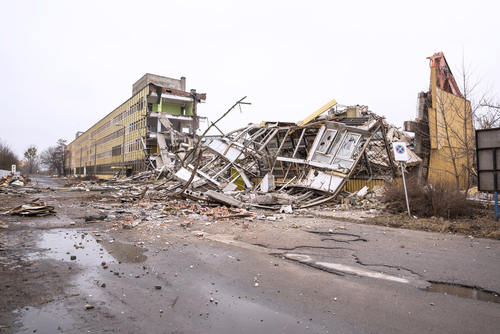Business continuity management (BCM)’s scope is perceived largely as internal to the company’s operations. In today’s environment, the biggest risks are from raw material suppliers or external partners.
With any supply chain disaster, the rippling effects of factory damage or shutdowns can be immediately felt. Take the 2011 Japanese earthquake, as an example. Factories affected by the disaster were shut down, resulting in parts shortages at major suppliers which caused lines down and factory downtimes at large automotive manufacturers. The impact rippled through the supply chain layers. High tech, automotive, aerospace, and other sector companies quickly found out that some of their suppliers were located or dependent on Japanese manufacturing facilities days and weeks after the event. Many supplier dependencies were not identified until much later.
I believe that in any case of supply chain disasters, there are major supplier information “blind spots” that you likely have experienced firsthand, as a supply chain practitioner. These information black holes are around suppliers’ manufacturing locations, sub-contractor dependencies, and business recovery strategies. But mapping out the entire supply chain across all layers can seem like an insurmountable challenge. However, a good starting point is to take all the direct suppliers and map their manufacturing locations, alternate sites and collect information about how and where they plan to recover business in case of a major crisis.
Supplier or partner Business Continuity practices & recovery plans are largely unknown by most companies. The 2010 BCI Survey reveals that only 7% of companies have been able to get suppliers to adopt business continuity planning. Of these companies, only 50% have gotten suppliers to share details about their business continuity practices.
This makes managing disastrous events and supply chain risk extremely challenging, not only for the customers but also for the suppliers impacted by the event! In the immediate follow up to an event, suppliers are busy trying to assess impact, account for people and damage to facilities, and taking recovery actions. Their customers are reaching out with questions like: did you have a facility here, what did you build for me in this facility, are there other sites where you can build this, are these sites currently building this part, if not, are they qualified, etc. How long before the alternate site will be up and running? How long will allocation last? When you multiply these questions by the hundreds of customers who are thrown in a spin, you have a truly chaotic scenario.
Critical supplier resources are then busy responding to customer inquiries and unable to focus concentrated efforts on the really critical activities such as: assessing damage, activating continuity plans, moving people, tooling, resources, equipment, re-routing raw materials, bringing up alternate sites and sources, placing new POs, coordinating repairs and resuming supply, etc. This further compounds delays – suppliers and customers both lose in this scenario.
Providing business continuity plan information proactively to customers helps suppliers too! They can reduce the number of inquiries and improve the type of questions they have to face in a crisis. If their customers already know where parts are built, what other sites can build them, how long it takes to recover etc. then the conversation can be: what can we do to help speed up your recovery? After all, this is at the heart of the problem. In a supply chain disruption, both parties are hurting and it is in both parties’ best interest to gain the fastest recovery possible.
There is an important take away in any crisis – what we can do so next time we are better informed, better prepared, more resilient, more collaborative, etc
Supplier business continuity information is not a ‘nice thing’ to have – it is a strategic priority for customers, has important benefits for suppliers, and can really help companies to change the language of crisis response. It is a connected world out there. E.g. automotive and its dependence on high-tech suppliers. Business continuity information sharing can change the language of crisis response.
Bindiya Vakil is the CEO and Founder of Resilinc.





